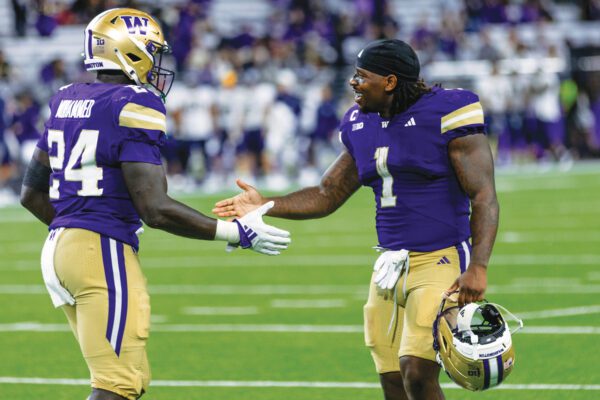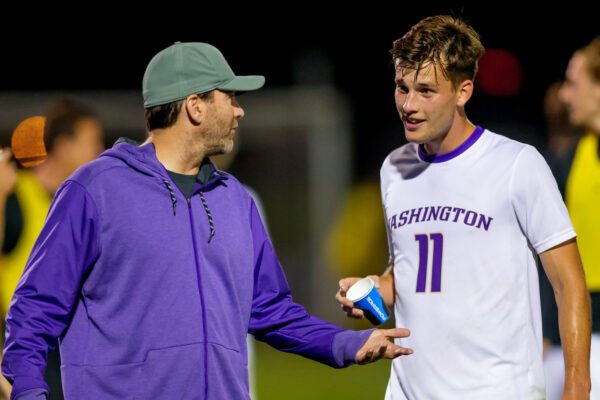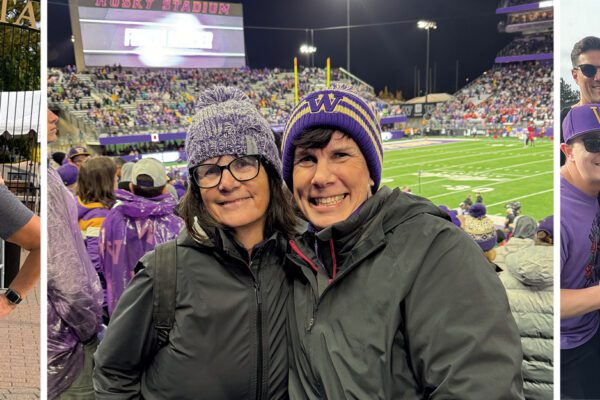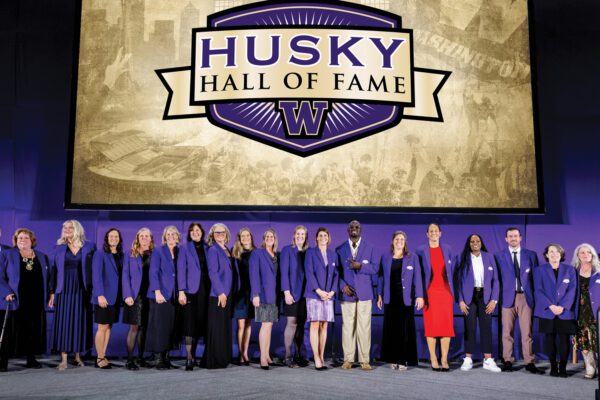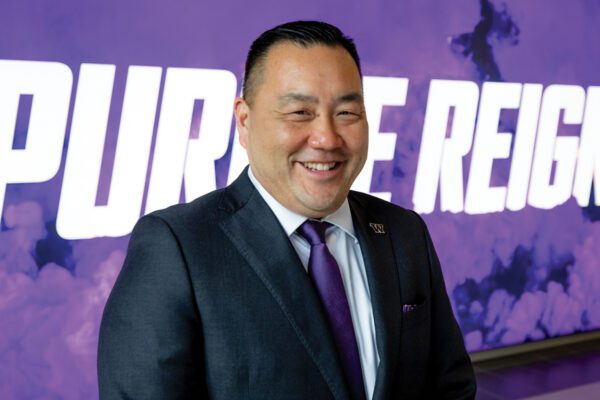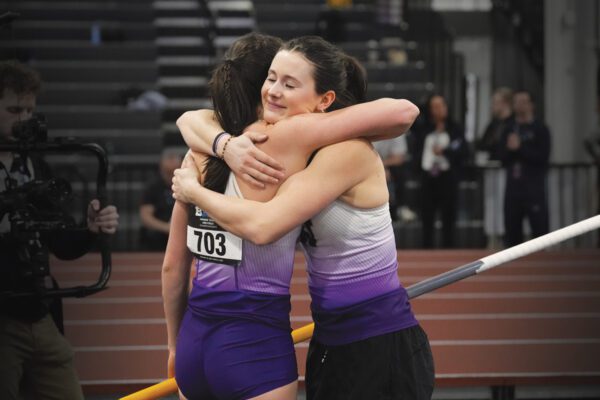Celebrated Husky and pro linebacker Rick Redman pays forward a UW career that set him up for life
Twelve-year-old Rick Redman committed his heart to playing football at Notre Dame on the day his father died, the same day the pair had watched his dad’s beloved Fighting Irish on television. Six years later, he followed his head to the UW for a business degree and one of the most successful football careers in school history.
When Rick graduated from Seattle’s Bishop Blanchet High School in 1961, he’d already planned to accept Notre Dame’s scholarship offer. Then, his stepfather — John Sellen, founder of Sellen Construction — asked him to consider Washington “and all the relationships and connections I could make for my future if I stayed here.”
“I’d been to games and practices and had been recruited by the Huskies, but I’d never been on upper campus. I didn’t know anything about the school,” Rick explains.
One phone call to a coach and one campus tour later, Rick became a Husky. The rest is UW Football and Seattle community lore. As a linebacker, he helped lead the Huskies to the Rose Bowl in 1963, was a two-time All-American and Academic All-American, and was inducted into the College Football Hall of Fame in 1995. He played nine seasons in the NFL with the San Diego Chargers.
Post-football, Rick joined his stepdad’s company. He built Sellen into both a powerhouse construction firm and a caring philanthropic company, retiring as CEO after 35 years. He did indeed develop those promised business connections and continued to benefit from lessons learned as a Husky — communication, teamwork and “appreciating other people’s skills and making them feel good contributing.”
Today, Rick pays it forward as one of the Tyee Club’s most generous former student-athletes, supporting scholarships, capital projects and more as a member of the Tyee Club Champions Circle — an exclusive group of donors who have given more than $1 million to Husky Athletics.
“The UW gave me so much, and I feel like I’ve been really lucky in my life. It’s a way to say thank-you,” he says. “It’s all about trying to create a championship environment for the kids — not for me or the other fans, but for the kids. I’d like all our programs to be successful.”



